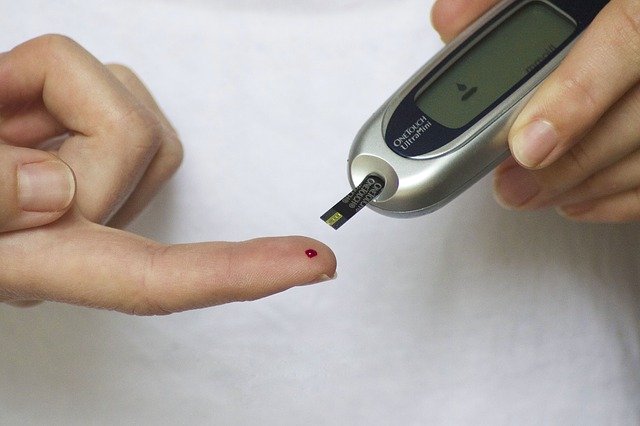Use of rosiglitazone for type 2 diabetes, a medication that lowers blood sugar, increases the risk of death by heart disease by 33% according to a recent study.
Diabetes is one of the most common diseases in Canada. According to the Public Health Agency of Canada, one in ten adults will be diagnosed with diabetes in their lifetime. With more cases appearing each year, and people with diabetes living longer, it is very important to find ways to safely control blood sugar.
Diabetes is caused by the body’s inability to properly produce a hormone called insulin. Without this hormone, which helps keep the level of sugar in the blood in check, the levels of blood sugar rise and cause a variety of symptoms including thirst, fatigue, dizziness, and in extreme cases comas and even death. There are three types of diabetes. Type 1 is an autoimmune disease where insulin-producing cells are destroyed by the immune system and often occurs in children and young adults. Type 2 is a metabolic problem (meaning your body cannot properly use the insulin it produces) and usually occurs in older people, especially if they are overweight. The third type of diabetes is gestational diabetes, where a pregnant woman’s blood sugar rises uncontrollably. Often, gestational diabetes will disappear once the woman gives birth, though it can lead to increased risks of developing type 2 diabetes.
Type 2 diabetes is the most common form of the disease and affects a significant percentage of adults and the aging population. When left untreated, it can lead to many complications including heart disease, circulation problems, nerve damage, infections, and even blindness.
One of the successful ways of controlling type 2 diabetes is through diet, exercise and special medications that help the body reduce the levels of sugar in the blood. There are different types of medications, and doctors work with patients to find which medication works best for the patient’s needs. One of these drugs, rosiglitazone, is used to help patients lower their blood sugar.
Serious side-effects of rosiglitazone
However, there are contradictory studies that seem to show there might be a serious side-effect to rosiglitazone. This includes one that suggests patients could experience up to a 43% increase in serious heart-related problems causing death. This led the European Medicines Agency to stop the sale and use of rosiglitazone through all of Europe since 2010.
In the United States, the Food and Drug Administration first restricted the use of the medication but then loosened the standards after some studies showed that there was no increase in heart-related problems from using rosiglitazone. In Canada, the drug was not restricted, though the responsibility of making the decision to use rosiglitazone was left up to a patient’s doctor. Health Canada sent a letter to doctors recommending that the drug only be used as a last resort if other blood sugar medication did not work for a patient, and requires patients to sign a consent form to show they understand the risks of taking rosiglitazone.
Reviewing the available data
With such different results from study to study, researchers from Yale University decided to do a statistical analysis of as many studies on rosiglitazone as they could find to see whether using rosiglitazone for type 2 diabetes really did cause an increase in the risk of dying from heart disease.
They looked at over 130 different studies of patients who had taken rosiglitazone for 24 weeks or more and compared their risks of death from heart disease with patients who took other forms of blood sugar medication or who took a placebo. What they found was that there was a 33% increase in the risk of patients dying of heart-related disease. This includes patients who were dying of heart attacks, heart failure, or other cardiovascular issues such as strokes.
What is interesting is that the researchers did not only include the results from studies that showed a positive result for heart disease, but they also included studies where no heart-related effects were observed. Even when including such studies, the results still overwhelmingly show that there is a one-third increase in the risk of dying from heart-related diseases when taking any dose of rosiglitazone.
There are still some questions regarding the long-term effects of using rosiglitazone. Since many of the studies followed patients for less than a year, there is no way of knowing if the risks continue to increase with prolonged use of rosiglitazone for type 2 diabetes, or whether the level of risk stays the same.
A call for greater transparency
The researchers also found was that the results were easier to follow and interpret when pharmaceutical companies released individual patient information through databases, so that specific details of patient health outcomes could be properly analyzed. This led the Yale researchers to advocate for greater transparency in making specific details of pharmaceutical company studies open to the public. They believe that such release of information can lead to a better interpretation of the risks of drugs for patients, and can help guide policies that will protect patients from drugs that have greater risks of severe side-effects.
Written by Nancy Lemieux
References:
- Yale study adds to evidence of diabetes drug link to heart problems. (2020). Retrieved 16 February 2020, from https://www.eurekalert.org/pub_releases/2020-02/ysop-ys021120.php
- Wallach, J. D. et al. Updating insights into rosiglitazone and cardiovascular risk through shared data: individual patient and summary level meta-analyses. (2020).
- Diabetes in Canada – Canada.ca. (2020). Retrieved 16 February 2020, from https://www.canada.ca/en/public-health/services/publications/diseases-conditions/diabetes-canada-highlights-chronic-disease-surveillance-system.html
- Health Canada “passes the buck” on diabetes drug, researcher charges. (2020). Retrieved 16 February 2020, from https://www.cmaj.ca/content/cmaj/183/2/E75.full.pdf
Image by Tesa Robbins from Pixabay



